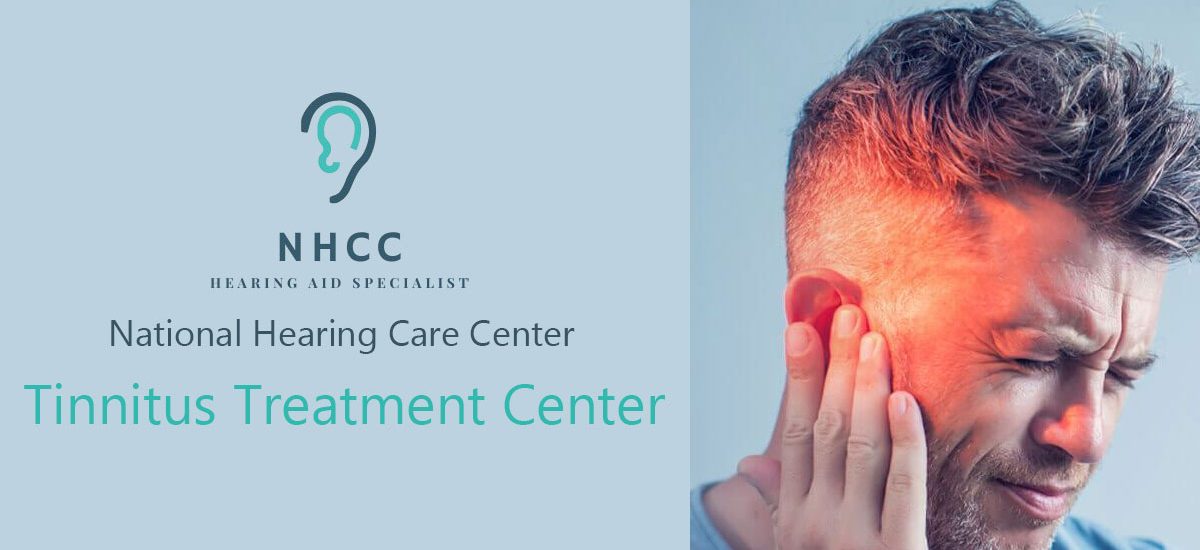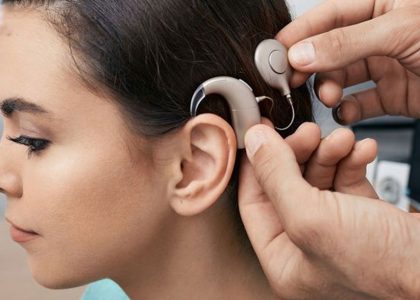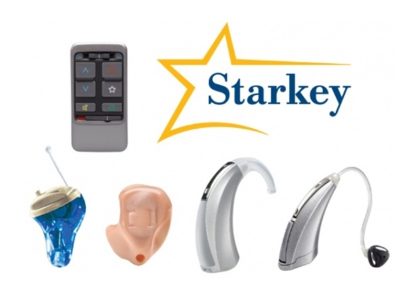Tinnitus Treatment in Bangladesh
Tinnitus is a condition characterized by the perception of noise or ringing in the ears when no external sound is present. It affects millions of people worldwide, and Bangladesh is no exception. Individuals with tinnitus often describe it as hearing ringing, buzzing, hissing, or whistling sounds, which can be continuous or intermittent. This article will explore the causes, symptoms, and different options for tinnitus treatment in Dhaka, Bangladesh, as well as how individuals can find relief and improve their quality of life.
What is Tinnitus?
Tinnitus is not a disease but rather a symptom of an underlying condition. It can be caused by a variety of factors, including exposure to loud noises, age-related hearing loss, ear infections, earwax buildup, and even certain medications. Tinnitus can vary in severity, ranging from mild and manageable to severe and debilitating. It is essential to understand that tinnitus is subjective, meaning only the affected individual can hear the sound.
In Bangladesh, awareness about tinnitus is gradually increasing. However, many people still do not seek treatment or ignore the symptoms until the condition worsens. Lack of information and proper guidance contributes to delayed diagnosis and treatment, which can negatively impact an individual’s mental and physical health.
–
–
Complications of Tinnitus
Tinnitus, especially when severe or chronic, can lead to several complications that impact an individual’s mental and physical well-being. Some of the most common complications include:
- Sleep Disturbances: The constant noise associated with tinnitus can make it difficult to fall asleep or stay asleep. This often leads to insomnia, which in turn can affect daytime functioning, mood, and overall health.
- Difficulty Concentrating: The persistent sound in the ears can interfere with concentration and focus, making it challenging to carry out tasks that require attention, such as reading or working.
- Mental Health Issues: Tinnitus is often linked to increased levels of stress, anxiety, and depression. The emotional distress caused by tinnitus can lead to a vicious cycle, where stress worsens tinnitus, and tinnitus exacerbates mental health conditions.
- Social Isolation: Individuals with severe tinnitus may avoid social interactions or environments that seem overwhelming. This isolation can contribute to loneliness and deteriorate quality of life.
- Impaired Hearing: Tinnitus can be a symptom of hearing loss, and in some cases, it can make it harder to hear external sounds. This may impact communication and lead to misunderstandings or frustration in conversations.
- Impact on Occupational Performance: Tinnitus can affect work performance, especially in roles that require intense focus or involve a quiet environment. People with tinnitus might find it challenging to work in such settings without adequate support.
Types of Tinnitus
Tinnitus can present itself in various forms, and understanding the different types can aid in determining the appropriate treatment. There are two main categories of tinnitus:
- Subjective Tinnitus: This is the most common type of tinnitus and is only heard by the affected individual. It is often caused by problems in the ear, auditory nerve, or parts of the brain that process sound signals. Subjective tinnitus can be continuous or intermittent and may be described as ringing, buzzing, or whistling. This type is usually associated with noise-induced hearing loss, ear infections, or age-related hearing degeneration.
- Objective Tinnitus: Unlike subjective tinnitus, objective tinnitus can be heard by a healthcare provider during an examination. This rare form is caused by a physical issue, such as abnormal blood flow in the blood vessels near the ear, muscle contractions, or a middle ear bone condition. It often presents as a rhythmic pulsing sound in sync with the heartbeat (pulsatile tinnitus). Objective tinnitus usually requires medical intervention to treat the underlying condition.
Other subcategories of tinnitus include:
- Pulsatile Tinnitus: Characterized by a pulsing sound that often matches the heartbeat. It can be caused by high blood pressure, turbulent blood flow, or abnormal blood vessel anatomy.
- Musical Tinnitus: A rare form in which the person hears music or singing. This type is often related to hearing loss and requires a specialized approach for management.
- Somatic Tinnitus: This type is influenced by the movement or stimulation of certain body parts. Neck or jaw movements, for instance, may change the intensity or pitch of the tinnitus sound.
Causes of Tinnitus: Why Do You Hear Ringing in Your Ears?
The exact cause of tinnitus can be challenging to determine, but several factors may contribute to its development:
- Exposure to Loud Noise: Prolonged exposure to loud noises, such as in industrial environments or listening to music at high volumes, can damage the inner ear, leading to tinnitus.
- Age-Related Hearing Loss: As people age, the delicate structures of the inner ear can deteriorate, resulting in hearing loss and tinnitus.
- Ear Infections and Blockages: Infections or blockages in the ear, such as earwax buildup, can alter the hearing process and cause tinnitus.
- Medication Side Effects: Some medications, like antibiotics, diuretics, or high doses of aspirin, can have tinnitus as a side effect.
- Underlying Health Conditions: Medical conditions such as high blood pressure, diabetes, or cardiovascular issues can contribute to tinnitus.
- Ear or Head Injuries: Injuries affecting the ear or brain can lead to abnormal nerve signals and result in tinnitus.
- Mental Health Factors: Stress, anxiety, and depression can exacerbate tinnitus symptoms or make individuals more susceptible to experiencing it.
It is crucial to consult an audiologist or healthcare professional to identify the underlying cause and receive appropriate treatment.
Medications That Cause Tinnitus
Some medications have been linked to the onset or worsening of tinnitus. Known as ototoxic medications, these drugs can cause temporary or permanent damage to the inner ear, resulting in tinnitus or hearing loss. Common medications associated with tinnitus include:
- Nonsteroidal Anti-Inflammatory Drugs (NSAIDs): High doses of aspirin or other NSAIDs, such as ibuprofen or naproxen, can lead to tinnitus, especially when used over a long period or in high doses.
- Certain Antibiotics: Antibiotics like gentamicin, erythromycin, and vancomycin are known for their ototoxic effects. These are usually prescribed for severe infections but should be used with caution under medical supervision.
- Diuretics: Diuretic medications, such as furosemide and bumetanide, can cause tinnitus, especially when taken in high doses or combined with other ototoxic drugs.
- Antidepressants and Anti-Anxiety Medications: Tricyclic antidepressants and selective serotonin reuptake inhibitors (SSRIs) can potentially worsen tinnitus in some individuals.
- Chemotherapy Drugs: Certain chemotherapy agents, such as cisplatin and carboplatin, can cause hearing loss and tinnitus as a side effect. These medications require careful monitoring during treatment.
If you suspect that a medication is causing or worsening your tinnitus, consult your doctor. Never stop taking prescribed medication without professional guidance, as doing so may have serious health consequences.
Symptoms of Tinnitus: How Do You Know If You Have It?
Tinnitus manifests differently for each individual, but common symptoms include:
- Hearing a ringing, buzzing, or humming sound in one or both ears.
- Experiencing varying levels of sound, from low to high pitches.
- Being more aware of the sound in quiet environments or at night.
- Difficulty concentrating or sleeping due to persistent noise.
- Feeling irritable, anxious, or stressed because of the sound.
If you or someone you know is experiencing any of these symptoms, it is advisable to seek professional help at a reputable hearing aid center in Bangladesh, such as National Hearing Care Center, for a proper diagnosis and treatment plan.
Tinnitus Treatment in Bangladesh: Options
Although there is no cure for tinnitus, various treatment options can help manage the condition effectively. The goal of treatment is to reduce the perception of tinnitus and improve the individual’s quality of life. Here are some of the most common treatment options available in Bangladesh:
- Hearing Aids: Hearing aids are a popular treatment option for individuals with tinnitus, especially if they have hearing loss. Modern hearing aids, such as those offered by National Hearing Care Center, come with built-in tinnitus masking features. These devices amplify external sounds and provide relief by masking the internal noise caused by tinnitus.
- Sound Therapy: Sound therapy involves using external noises to alter an individual’s perception of or reaction to tinnitus. It can include white noise machines, fans, nature sounds, or specialized devices that produce soothing sounds. The therapy helps divert attention away from tinnitus and promotes relaxation.
- Tinnitus Retraining Therapy (TRT): TRT is a form of habituation therapy that combines sound therapy with counseling. The aim is to retrain the brain to perceive tinnitus as a non-threatening sound, thereby reducing its impact. TRT typically takes several months to achieve noticeable results and requires guidance from an experienced audiologist.
- Cognitive Behavioral Therapy (CBT): CBT is a psychological approach that helps individuals manage the emotional distress associated with tinnitus. It focuses on changing negative thoughts and behaviors related to tinnitus and teaches coping strategies. CBT is especially beneficial for people whose tinnitus causes anxiety, depression, or sleep disturbances.
- Medications: While no medication can cure tinnitus, certain drugs can help reduce its severity. Antidepressants or anti-anxiety medications may be prescribed to alleviate the distress caused by tinnitus. However, these should only be taken under the supervision of a healthcare professional.
- Lifestyle Changes and Home Remedies: Making specific lifestyle changes can significantly reduce tinnitus symptoms. This may include:
- Reducing exposure to loud noises by using ear protection.
- Managing stress through relaxation techniques, such as meditation or yoga.
- Maintaining a healthy diet and avoiding stimulants like caffeine and nicotine.
- Regular exercise to improve overall health and reduce stress levels.
- Alternative Therapies: Some people find relief from alternative therapies like acupuncture, chiropractic care, or herbal supplements. While the effectiveness of these therapies varies, they can be considered complementary options under professional guidance.
When to Visit a Doctor
Tinnitus is a condition that should not be ignored, especially if it interferes with your daily life. Consider visiting a doctor or an audiologist under the following circumstances:
- Persistent or Worsening Tinnitus: If the ringing or buzzing sound persists for more than a week, it is advisable to seek medical advice to rule out underlying health conditions.
- Sudden Onset of Tinnitus: Sudden tinnitus accompanied by hearing loss, dizziness, or balance issues could indicate a serious medical problem, such as Meniere’s disease or acoustic neuroma.
- Tinnitus in Only One Ear: If you experience tinnitus in one ear only, it might be linked to an ear infection or a condition affecting the auditory nerve on that side.
- Disturbance in Daily Activities: When tinnitus starts affecting your sleep, concentration, or ability to function normally, it’s essential to get a professional assessment and discuss treatment options.
- Tinnitus with Other Symptoms: Tinnitus associated with symptoms such as pain, discharge from the ear, or swelling should prompt a visit to an ENT specialist for a comprehensive evaluation.
Tinnitus Treatment Center in Bangladesh
If you are looking for tinnitus treatment center in Dhaka, National Hearing Care Center is a leading hearing aid center that offers comprehensive hearing and tinnitus management services. With certified audiologists and state-of-the-art technology, the center provides personalized treatment plans to help individuals manage tinnitus effectively.
This Tinnitus Treatment Center offers a range of services, including:
- Comprehensive hearing evaluations and tinnitus assessments.
- Professional guidance on selecting the right hearing aids and tinnitus management devices.
- Customized tinnitus retraining therapy and sound therapy solutions.
- Follow-up care and support for ongoing tinnitus management.
Their team of experienced audiologists works closely with each patient to create a tailored treatment plan that addresses the unique needs of the individual. The center is equipped with the latest hearing aids and tinnitus management devices from globally renowned brands, ensuring that patients receive the highest quality of care.
How Hearing Aids Can Help People with Tinnitus
Hearing aids are not just for those experiencing hearing loss—they can also be a highly effective treatment option for managing tinnitus symptoms. For individuals with both hearing loss and tinnitus, hearing aids provide multiple benefits that can improve overall auditory perception and reduce the perceived intensity of tinnitus. Here’s how hearing aids can help alleviate tinnitus:
- Amplification of External Sounds: Hearing aids amplify external sounds, making them louder and clearer. By doing so, they mask the internal sounds caused by tinnitus, allowing the user to focus more on environmental sounds and less on the ringing, buzzing, or hissing noise inside their ears. This is especially beneficial in quiet environments where tinnitus symptoms tend to be more noticeable.
- Enhanced Auditory Stimulation: For individuals with hearing loss, a lack of auditory input can exacerbate tinnitus. Hearing aids increase the auditory input, providing enhanced stimulation to the brain and reducing the hyperactivity that causes tinnitus. This process, known as auditory enrichment, helps the brain to focus more on real sounds rather than creating phantom noises.
- Sound Therapy Integration: Many modern hearing aids are equipped with sound therapy features specifically designed for tinnitus relief. These devices can play soothing sounds, such as white noise, nature sounds, or ocean waves, that blend with the tinnitus noise, offering a masking effect that helps individuals manage their condition better.
- Improved Communication and Reduced Stress: Tinnitus can interfere with communication, making it difficult to engage in conversations. Hearing aids not only enhance hearing but also make it easier to communicate, reducing frustration and stress. Lower stress levels, in turn, can lessen the severity of tinnitus symptoms.
- Customizable Tinnitus Programs: Advanced hearing aids offer customizable tinnitus programs that can be tailored to the user’s specific needs. These programs may include tinnitus retraining therapy (TRT) sounds, which retrain the brain to perceive tinnitus differently, making it less noticeable over time.
Given these benefits, hearing aids can be a valuable tool for tinnitus management, especially for individuals who experience both hearing loss and tinnitus. If you’re in Bangladesh and looking for suitable hearing aids, the National Hearing Care Center offers a wide range of high-quality devices designed to address tinnitus effectively. Below are some recommended hearing aids from their collection.
Recommended Hearing Aids for Tinnitus Treatment
- Starkey Livio AI: The Starkey Livio AI is a cutting-edge hearing aid that not only provides exceptional sound quality but also includes advanced features for tinnitus relief. It offers a comprehensive suite of tinnitus therapy options, including customizable white noise and soothing sound programs. The Livio AI is available in both behind-the-ear (BTE) and receiver-in-canal (RIC) styles, making it suitable for various levels of hearing loss and tinnitus severity.
- Features:
- Built-in sound therapy for tinnitus masking.
- Bluetooth connectivity for streaming audio.
- AI technology for superior sound clarity.
- Rechargeable options for convenience.
- Visit Product Page: Starkey Livio AI
- Features:
- Starkey Muse iQ: Starkey Muse iQ is designed for individuals seeking effective tinnitus management combined with improved hearing performance. It comes equipped with Starkey’s Multiflex Tinnitus Technology, which allows users to customize their tinnitus relief settings. The Muse iQ also features a wireless connection to stream music and phone calls directly to the hearing aids, making it a versatile choice.
- Features:
- Multiflex Tinnitus Technology for personalized relief.
- Sleek, discreet design with RIC and BTE options.
- Wireless connectivity for seamless streaming.
- Feedback cancellation for a clearer listening experience.
- Visit Product Page: Starkey Muse iQ
- Features:
- Starkey Aries Pro 675: The Starkey Aries Pro 675 is an affordable yet effective hearing aid for individuals looking to manage tinnitus. It provides essential tinnitus masking features and clear sound amplification to help reduce the prominence of tinnitus symptoms. The device’s easy-to-use controls and comfortable fit make it an excellent choice for first-time hearing aid users.
- Features:
- Basic tinnitus masking capabilities.
- Comfortable and lightweight design.
- Long battery life for extended use.
- Available in a range of fitting options.
- Visit Product Page: Starkey Aries Pro 675
- Features:
- Starkey Halo 2: Starkey Halo 2 is a hearing aid that pairs effortlessly with Apple devices, allowing for direct streaming of sound, music, and phone calls. It includes several tinnitus relief options that can be adjusted through a mobile app, providing on-the-go control for users. The Halo 2 is ideal for those who want a blend of hearing enhancement and technology-driven tinnitus management.
- Features:
- Multiple tinnitus relief sounds.
- iOS compatibility for direct audio streaming.
- Adaptive technology for different listening environments.
- Personalized tinnitus relief profiles.
- Visit Product Page: Starkey Halo 2
- Features:
These hearing aids from the National Hearing Care Center are equipped with the latest technology to help you manage tinnitus effectively while enhancing overall hearing performance. Choosing the right hearing aid can significantly improve your quality of life and reduce the impact of tinnitus on your daily activities.
If you’re unsure about which hearing aid is best for your condition, schedule a consultation with the experts at the National Hearing Care Center in Bangladesh. Their professional audiologists can help you find a solution tailored to your specific needs, ensuring you get the best possible outcome from your tinnitus management plan.
Tips for Managing Tinnitus: Self-Care and Support
While professional treatment is essential, self-care strategies can also play a significant role in managing tinnitus. Here are some tips for managing tinnitus at home:
- Stay Informed: Learn as much as you can about tinnitus and its causes. Understanding the condition can help reduce anxiety and make it easier to cope with.
- Use Background Noise: Keep a fan, radio, or white noise machine on in the background to mask the tinnitus sound. This is especially helpful at night when trying to sleep.
- Practice Relaxation Techniques: Stress and anxiety can worsen tinnitus symptoms. Practice relaxation techniques such as deep breathing, meditation, or yoga to reduce stress levels.
- Avoid Silence: Complete silence can make tinnitus more noticeable. Keeping some background noise can help distract your brain from the internal sound.
- Join Support Groups: Connect with others who have tinnitus through support groups or online forums. Sharing experiences and coping strategies can be beneficial for emotional support.
- Consult an Audiologist Regularly: Regular check-ups with an audiologist ensure that your treatment plan is effective and adjusted as needed.
How to Prevent Tinnitus
While not all cases of tinnitus can be prevented, there are several steps you can take to reduce your risk:
- Protect Your Ears from Loud Noises: Use ear protection, such as earplugs or noise-canceling earmuffs, in environments with loud sounds like construction sites, concerts, or heavy machinery. Avoid listening to music at high volumes through headphones.
- Maintain Cardiovascular Health: Good blood circulation is essential for ear health. Exercise regularly, eat a balanced diet, and control blood pressure to prevent tinnitus associated with cardiovascular issues.
- Limit the Use of Ototoxic Medications: Certain medications can damage the inner ear and lead to tinnitus. Always consult your doctor before starting new medications and ask if they have ototoxic properties.
- Manage Stress and Anxiety: High levels of stress and anxiety can worsen tinnitus. Practice relaxation techniques such as deep breathing, meditation, or yoga to keep stress levels under control.
- Avoid Earwax Buildup: Clean your ears gently without using cotton swabs or inserting objects that can push the wax further in. Excessive earwax can lead to blockages and tinnitus. If you have earwax buildup, seek professional removal.
- Get Regular Hearing Check-ups: Regular check-ups with an audiologist can help detect early signs of hearing loss or tinnitus and take preventive measures accordingly.
Conclusion: Finding Relief for Tinnitus in Bangladesh
Tinnitus can be a challenging condition to live with, but with the right support and treatment, individuals can find relief and lead fulfilling lives. If you or a loved one is experiencing tinnitus, do not hesitate to seek help from professionals like National Hearing Care Center. With their expertise and personalized approach, they can guide you on your journey to managing tinnitus and improving your overall quality of life.
By raising awareness and providing accessible tinnitus treatment options, National Hearing Care Center is dedicated to helping individuals in Bangladesh take control of their auditory health and well-being.
–
–
Related Article
You may also like other articles of National Hearing Care Center:
1. Hearing Aid Repair in Dhaka
2. Invisible Hearing Aid Price in Bangladesh
3. Hearing Aid Batteries in Bangladesh
5. Starkey Hearing Aid Price in Bangladesh






